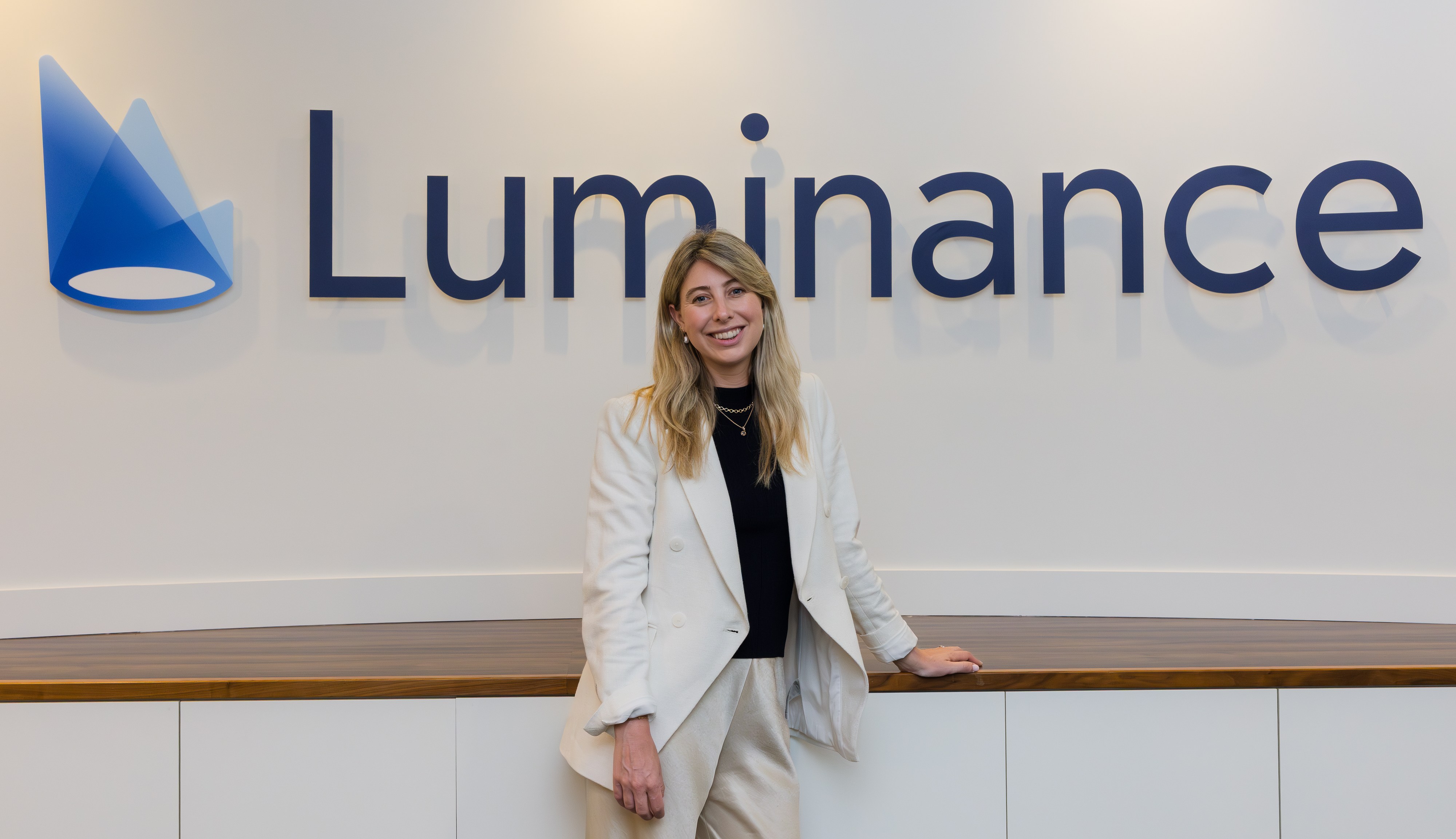As chief executive of Luminance, creator of a popular legal AI system, Eleanor Lightbody gets this question a lot: how long before we have no more lawyers?
“I think we are still far out from that one,” she said, laughing. “But how many lawyers is a different question.”
Her answer will provide little comfort to legal eagles, especially junior ones, in a world where artificial intelligence such as that provided by Luminance can do in seconds what might have taken them hours: reviewing contracts, revising them based on client requirements, negotiating final agreements.
Amid warnings of an AI-induced “white-collar recession” — data from the Office for National Statistics last week revealed a 0.1 per cent rise in UK unemployment to 4.7 per cent in the three months to May, while wage growth slowed — the Cambridge-based Luminance is having a moment.
It has been ten years in the making. The world has changed since 2015, when the start-up first began selling machine-learning systems to sceptical law firms to automate basic legal tasks. The ChatGPT moment, when OpenAI released its chatbot into the wild in November 2022, supercharged its upward trajectory.
“To change behaviours, and to really get people using technology on a daily basis, you almost have to see a tenfold increase in productivity. And that’s what the introduction of large-language models into these systems created,” said Lightbody, 33. “You almost crossed the chasm and suddenly it was like, ‘Okay, this is no longer nice to have. I want to use this every single day.’

Lightbody says large language models such as ChatGPT have led to huge productivity gains
BETTY LAURA ZAPATA FOR THE SUNDAY TIMES
Luminance has built a roster of more than 700 clients. In the past six months queries to its systems, which are centred on contract review, revision and negotiation, have jumped 40-fold. Sales have surged by five times to well over £50 million, with customers including the BBC, US conglomerate Koch Industries, National Grid and the professional services giant KPMG. Earlier this year, Luminance raised $75 million (£55 million) in funding from investors, including “magic circle” law firm Slaughter and May, in a deal that valued the company at $400 million.
It is not the only company riding the legal AI wave. Indeed, the law seems almost purpose built for disruption by AI systems that are particularly good at combing through vast quantities of text and making sense of them. A study by banking giant Goldman Sachs predicted that 44 per cent of legal work could be automated. As if to underline that trend, Harvey, an American rival to Luminance, last month raised $300 million in a financing round that valued the company at $5 billion.
• How to make Britain an AI superpower? Don’t downplay our talent
As with so much of the AI boom, however, the same questions recur. What do these systems do? How good are they? And what does it mean for the humans doing those jobs?
Luminance is centred on the meat and drink of corporate law: contracts. A company starts by uploading the relevant corporate data — from contracts to internal guidelines, precedents and principles — to Luminance’s systems. This allows the AI to swiftly become an expert in how the company does business, what is important to it, and the terms it insists on when striking deals with clients and partners.
So when a new contract comes in, with a single click the AI will “auto mark-up” the document to make it align with the company’s imperatives. The system will also summarise risks, or answer queries based on its analysis of a given contract. A digital “panel of judges” will check the work of the AI for accuracy.
• Entry-level jobs plunge by a third since launch of ChatGPT
Luminance is, in short, a synthetic in-house legal brain that has become particularly popular among corporate legal departments. Adrian Lang, chief legal officer of Staples Canada, the office supplies giant, said that Luminance had cut its contract-review time in half.
Which leads back to the pressing question of employment. Silicon Valley cheerleaders have been loudly predicting the end of jobs across entire industries because, their argument goes, AI systems are simply better, faster and smarter. Dario Amodei, chief executive of the San Francisco-based Anthropic, developer of the Claude chatbot, recently predicted that 50 per cent of entry-level white-collar roles would be eliminated within five years.
Politicians, meanwhile, are doing nothing to prepare for the jobs apocalypse. “Most of them are unaware that this is about to happen,” Amodei said. “It sounds crazy, and people just don’t believe it.”

Dario Amodei of Anthropic has predicted a white-collar jobs bloodbath
NATHAN WEYLAND FOR THE TIMES
And yet METR, a non-profit organisation, found in a recent randomised trial that in one context — software coding — developers using AI were actually 19 per cent slower than those who did not use the tools. The researchers offered various theories as to why, such as the learning curve associated with figuring out how to use artificial intelligence, or perhaps that automation of some tasks meant coders got bogged down with other issues.
Lightbody, for one, is not a doomsayer. Her prediction is that AI will help junior lawyers because it can act like a teacher. “The great thing about junior lawyers using something like Luminance is that the AI will tell you why another user has done something in the past, and how they’ve done something in the past,” she said. “So actually, it can upskill them at much faster rates.”
What is clear: the legal industry is finding out in real time how valuable, or not, the years of document review and other drudgery junior lawyers typically have to endure in order to advance is.
To George Niño, US legal head of the industrial automation giant Yokogawa, the answer is clear. “The old model where companies are paying these law firms to train their young lawyers? That model is dead,” he said. Niño recently told a law firm that he expects to be charged less for the same or superior work he has come to expect. “With some of our leading law firms, who charge anywhere from $1,300 an hour to $1,700 an hour, it’s not just a request, but an expectation that they leverage these AI tools to reduce our legal spend.”
The upshot: the job, especially for junior lawyers, will change and companies are feeling out how to navigate the landscape. Which is perhaps one reason why the market for new American graduates in the first three months of this year had “deteriorated noticeably”, according to the New York Federal Reserve.
• The Times and Sunday Times Tech Summit 2025
There is an irony in Luminance’s success, of course. Mike Lynch, the tech entrepreneur who died in a yacht accident last year, despised lawyers. His firm, Invoke Capital, founded and funded Luminance.
Lynch spent 12 years of his life, and tens of million of pounds, fighting fraud allegations over the sale of his company, Autonomy. He was acquitted of multiple fraud charges by a US jury last summer — right before his death. Lightbody worked closely with Lynch, first as an executive at Darktrace, the cybersecurity firm he founded, and for the last five years as chief executive at Luminance.

The late Mike Lynch, who funded Luminance and worked closely with Lightbody, despised lawyers
DEAN BELCHER FOR THE SUNDAY TIMES
Did Lynch ever talk about how the company might, if not rid the world of lawyers, at least mean there would be fewer of them? “That might be one of the reasons he invested in us early on,” she said. “But that never came up.”
AI is coming for the white-collar workforce
Tortus: This is a London-based AI “scribe” that transcribes, summarises and generates referral letters from doctor visits. It cuts more than an hour of work from a typical shift put in by NHS doctors.
FutureHouse: The San Francisco non-profit organisation, backed by Google billionaire Eric Schmidt, has created a “superintelligent AI agent” that automates scientific research.
ElevenLabs: This New York start-up has created audio AIs that threaten voiceover work for people in Hollywood and video games.
Cursor: This is an AI coding assistant, developed by Anysphere in San Francisco, that is popular with software developers.
